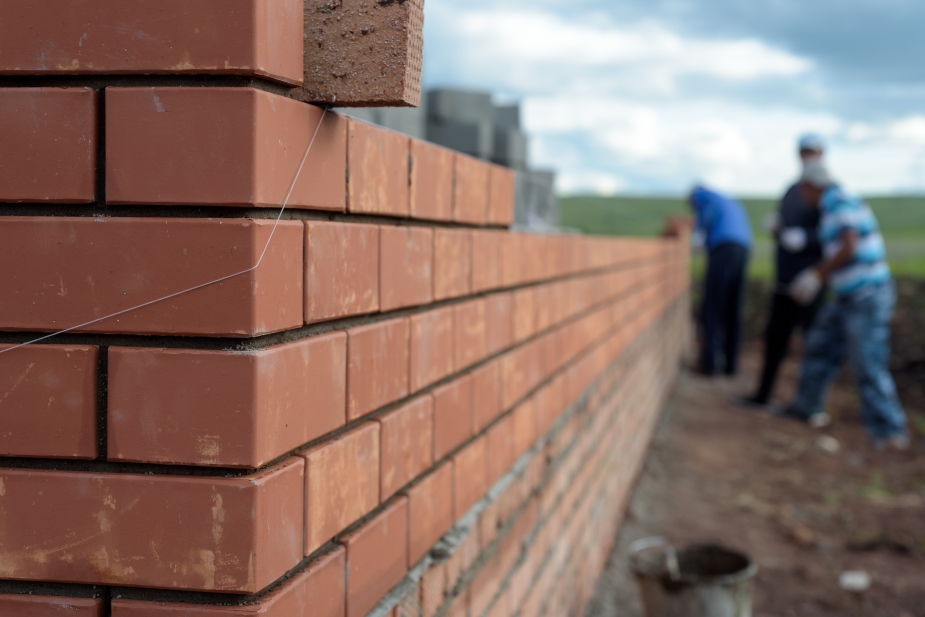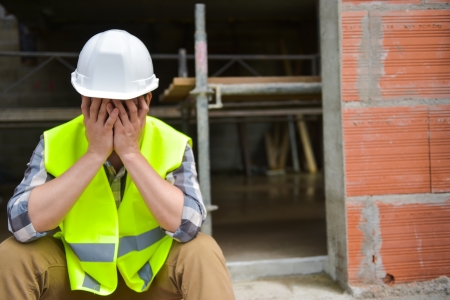Hiring professionals: How to avoid cowboy builders

A few precautionary steps will help you track down the right builder for your self build project. It will also help you avoid the cowboy builders too.
Taking the plunge to build your own home can be an incredibly daunting process and may include hiring a builder to do part or all of the build phase. The horror stories we hear about in the media give the impression that if you are unlucky enough to hire a cowboy builder, your project will be left in turmoil while the cowboys gallop into the sunset with all your money.

Cowboy builders aren’t just a huge problem for would be self/custom builder, they are also a serious issue for the construction industry and the wider UK economy too. Recent research from the Federation of Master Builders (FMB) reveals that a third of homeowners are so anxious about the possibility of choosing a bad builder, they have been put off commissioning building work altogether.
This means that fear of cowboy builders could actually be depressing the size of the UK construction economy, which given the size of the domestic repair and maintenance market, suggests serious knock-on effects on the wider economy. Indeed, the FMB’s latest research shows that on average, your typical homeowner would spend £40,000 on major home improvement projects over the next five years if they could be guaranteed a positive experience. If we were able to unlock this pent-up demand from fearful consumers, the benefit to jobs and growth would be very significant.
Cowboy builders are able to win work because people fail to see the differences between them and professional builders, or too often because people opt for those offering them deceptively low prices. However, there are some precautions you can take to identify the cowboys and help make sure that your dream build does not turn into a nightmare.
These are the FMB’s eight top tips for avoiding the cowboys:
1. Get a relevant recommendation
A personal recommendation from a family member or friend is the best reassurance that you aren’t working with a cowboy builder. Make sure the advice is relevant by asking some detailed questions, for example: ‘What did they have done?’; ‘How much did it cost?’; ‘How long did it take?’. You should also ask to see the project too – people have different ideas of what constitutes a good job.
2. Look at the builder’s past
Before you employ a building firm, you should check how long it has been trading. It is a common feature of cowboy builders that they trade under a string of different names. If they are reluctant to give you details about their business, such as an address or a landline telephone number, ask yourself why?
3. Don't pay up front
Never pay all the money for a job up front. Set up an agreed payment schedule and only pay the final amount when you are satisfied that all of the work has been completed to a satisfactory standard. Does the builder offer a warranty or guarantee, and is it backed up by insurance?

4. Sign on the dotted line
You may save yourself a lot of hassle by agreeing to a contract in writing before the job starts. It may feel like an unnecessary chore, but you’ll thank yourself later. Get estimated costs, scope, responsibilities and timeframes written down. This will avoid any unexpected costs cropping up at the end of the build, or confusion about what jobs were included in a quote. Paper is a solid foundation when it comes to building work.
5. Don't flash the cash
If the builder is asking to be paid in cash for the full amount, alarm bells should ring. If a trader is evading VAT, the chances are that they won’t be very honest with you either. Legitimate businesses don’t run this way.
6. Is the price too low?
Is something sounds too good to be true, the chances are it is. Beware if they offer to do the job on the cheap. Always get at least two or three quotes for a project to get a benchmark of what a job should cost. If one quote is significantly lower than others, then you should ask why that is.
7. Can they start straight away?
If a builder is free to start work tomorrow, alarm bells should ring. It should be no surprise that, in the current market, nearly half of the good and honest builders in the UK need to be contacted at least four months in advance of when a client is looking to start a self/custom build project. So many building horror stories start with a client approaching a builder who’s free to start work sooner than the more professional builder who is typically really busy.
8. Check credentials
If the builder is a member of an accreditation scheme or trade association, such as the FMB, find out what membership means – have they been properly vetted or have they just paid a fee for a badge? Also, be sure to check whether the firm or tradesperson really is a member of the organisation they say they are.
These precautions are essential in helping self/custom builders weed out the cowboys and mitigate against any issues that could crop up during the build.
Author

Brian Berry, Chief Executive, Federation of Master Builders

